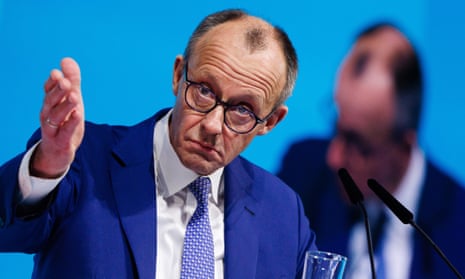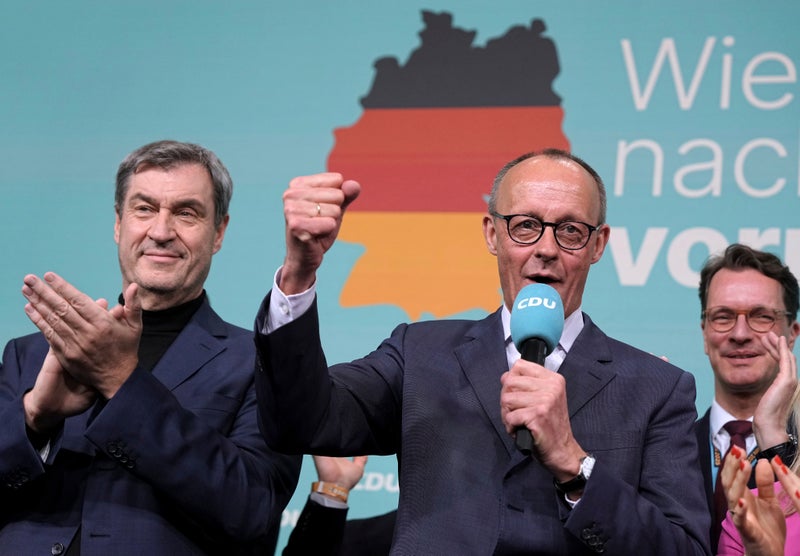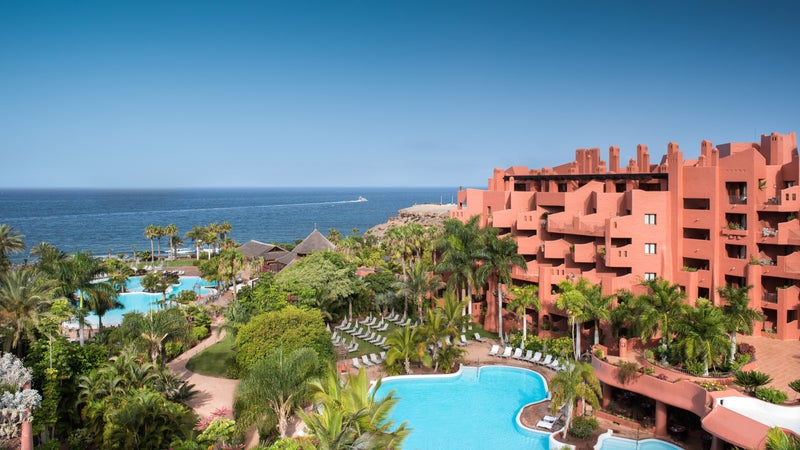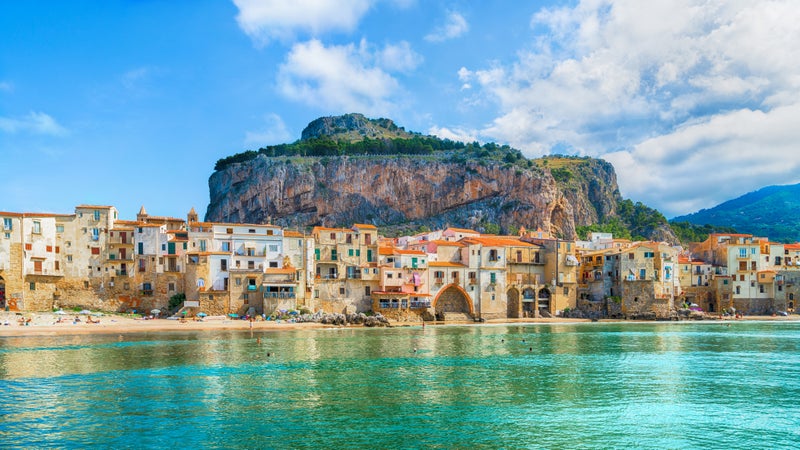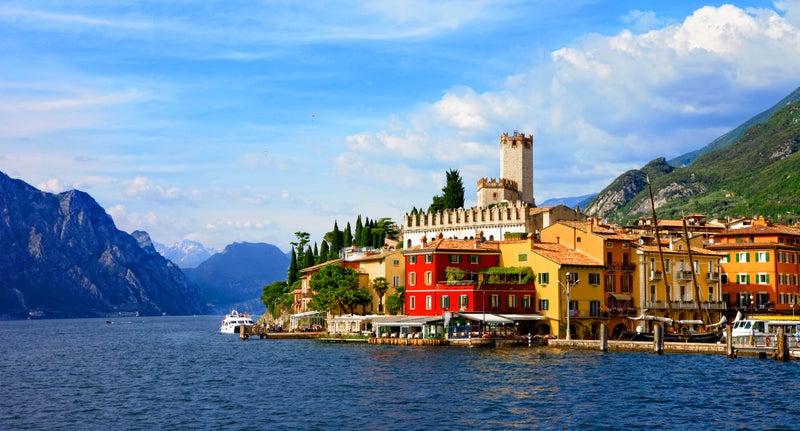Europe correspondent. There seems little doubt that, barring any major surprises, the conservative Merz will be Germany’s next chancellor. The CDU and its Bavarian sister party, the Christian Social Union (CSU), have been consistently and comfortably ahead in the polls on about 30%, with the Alternative für Deutschland second on 20-21%.
![[Two policemen stand guard at the Holocaust Memorial that is cordoned off as crime scene in Berlin, Germany.]](https://i.guim.co.uk/img/media/73a131c89130b5a9d30dab786f09f00e09568da6/0_200_6000_3600/master/6000.jpg?width=465&dpr=1&s=none&crop=none)
There is no apparent route to power for the far-right AfD since all other parties have ruled out working with a party they consider undemocratic. According to the Guardian’s poll tracker, the SPD are third on about 15% and the Greens fourth on 13%. The leftwing Die Linke are predicted to clear the 5% hurdle and expected to secure around 7-8% but it looks far from certain that the “conservative-left” Sahra Wagenknecht Alliance (BSW) or liberal FDP will do the same.
![[Election posters, showing German chancellor Olaf Scholz, right, and CDU top candidate Friedrich Merz, stand on a meadow in Nieder-Erlenbach near Frankfurt.]](https://i.guim.co.uk/img/media/29ba57c299b96d26a1a5573e89f682be35f1352b/0_101_2933_1759/master/2933.jpg?width=465&dpr=1&s=none&crop=none)
Depending on whether that trio (plus the local associations of Free Voters (FW), who could do well in Bavaria) score 5% or more, or qualify via the three-seat exception, the next assembly could have four parties or eight, the most in modern history. That makes the distribution of seats in the new parliament very hard to predict. However, most analysts see the most likely outcome being a CDU-led coalition government including either Scholz’s Social Democrats or the Greens, or maybe both.
![[German chancellor Olaf Scholz of the Social Democratic party (SPD) looks up from the stage at a citizens’ dialogue in Brandenburg, one day ahead of the national election.]](https://i.guim.co.uk/img/media/2221278eaf10139d8a3cafc02b9def6a64937620/0_123_3725_2236/master/3725.jpg?width=465&dpr=1&s=none&crop=none)
in Berlin. In terms of issues that Germans care about, immigration (37%) continues to dominate discussions, topping last month’s ARD-Deutschlandtrend poll by infratest dimap, just ahead the state of the economy (34%). The prospect of an armed conflict and the concern about Germany’s foreign policy was third, at 14%.
![[A view shows election campaign billboards of German chancellor Olaf Scholz of the Social Democratic party (SPD), Christian Lindner of the Free Democratic Party (FDP), Germany’s Greens party candidate Robert Habeck, Friedrich Merz, Christian Democratic Union (CDU) party candidate for chancellor, and of Die Linke party.]](https://i.guim.co.uk/img/media/2f96469945e9e091b57c8e1c1b739cc81244a15a/0_183_5500_3302/master/5500.jpg?width=465&dpr=1&s=none&crop=none)
The public opinion was focused on immigration after a spate of attacks with perpetrators of migrant background, including in Magdeburg in December (killing five, and injuring more than 200), Aschaffenburg in January (two dead), Munich in February (two dead).
![[A man makes soap bubbles in front of the Brandenburg Gate in Berlin.]](https://i.guim.co.uk/img/media/5918309d19de3b04de3926090f2a45385fe96a2b/0_146_4384_2631/master/4384.jpg?width=465&dpr=1&s=none&crop=none)
The issue has further polarised the debate after a controversial move by opposition leader Friedrich Merz, who passed a non-binding motion on tightening immigration rules with the support of the far-right Alternative für Deutschland, breaking the so-called firewall against the extreme parties.
![[The Guardian’s Jakub Krupa previews our German election coverage from Berlin – video]](https://i.guim.co.uk/img/media/15dc9d7490f81e9926bab756a9bfb5e208fd600c/0_0_1920_1080/1920.jpg?width=465&dpr=1&s=none&crop=none)
On Friday night, just before the election weekend, German police arrested a 19-year-old Syrian man suspected in a stabbing antisemitic attack at Berlin’s Holocaust memorial that left a Spanish tourist seriously injured. Earlier on Friday, an 18-year-old ethnic Chechen was arrested on suspicion of planning an attack on the Israeli embassy in Berlin, Bild reported.
Climate change (13%), inequality (11%), and education (8%) were the other three big topics. The Christian Democratic Union and Christian Social Union in Bavaria (CDU/CSU) frontrunners, led by wealthy former asset manager Friedrich Merz, are proposing to cut taxes, tighten welfare eligibility, slash immigration, process asylum claims abroad, and boost aid to Ukraine.
The far-right Alternative für Deutschland (AfD) has endorsed the concept of “re-migration”, threatening the mass deportation of migrants. It also pledges a return to the deutschmark, military conscription, and sweeping education reforms. Scholz’s Social Democratic party (SPD) aims to support low-income families by cutting VAT on food and tax for low earners and raising the minimum wage. It also aims to curb immigration and proposes a €100bn infrastructure investment fund, but is more cautious on Ukraine. Scholz has refused to send long-range Taurus missiles to Kyiv, defending the decision as a “prudent” anti-escalation measure.
The Greens have announced plans for a “billionaire tax” to help poorer households through the green transition. They are also in favour of increasing the minimum wage and are pushing for incentives to speed up the switch to renewable energy. It is very unusual for Germany to hold snap elections. It is only the fourth time in the country’s postwar history; the last time was in 2005.
But the collapse of Scholz’s three-way government late last year meant there was no other obvious way to resolve the political crisis and provide the country with a stable leadership it needs to face the challenges. The three-way “traffic-light” coalition of Social Democrats (SPD), Free Democrats (FDP) and Greens ruling Germany since 2021 collapsed in November under the weight of its own ideological contradictions and the country’s economic and security challenges.
The outgoing Social Democrat chancellor, Olaf Scholz, fired his liberal finance minister, Christian Lindner, over a bitter months-long budget dispute, then called a confidence vote in parliament deliberately in order to lose it – which he duly did. Whoever becomes chancellor will have to tackle an economy beset by high energy and labour costs, stifling bureaucracy, crumbling infrastructure and an economy that has shrunk for two consecutive years for the first time in decades.




